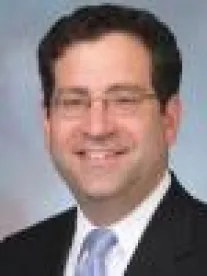The District of Columbia regulates many activities that go unregulated in other jurisdictions. One example relevant to pharmaceutical companies is the requirement that in D.C., detailers must obtain a license before they may speak in person with a physician, nurse or other health professional. Pharmaceutical detailers also must undergo 15 hours of continuing education every two years and must keep records of their interactions with licensed health professionals or their employees.
The District of Columbia requires that individuals obtain a license from the D.C. Board of Pharmacy in order to engage in the practice of “pharmaceutical detailing” in D.C. See D.C. Code § 3-1207.41; 17 DCMR § 8300.1. A person is engaged in pharmaceutical detailing if, acting as a representative of a pharmaceutical manufacturer or labeler, he or she communicates in-person with a licensed health professional or a representative of a licensed health professional, in a non-conference setting, for purposes of selling, marketing or promoting a prescription or over-the-counter pharmaceutical product. See 17 DCMR § 8300.5. An individual who practices pharmaceutical detailing in D.C. without a license is subject to a fine of up to $10,000 (plus possible other penalties and sanctions). See 17 DCMR § 8300.3.
As part of the application to obtain a pharmaceutical detailer’s license, one must submit proof of graduation from an “institution of higher education” or obtain a waiver of the education requirement, and must certify that he or she will follow the PhRMA Code and certain other ethical requirements set forth in the regulations. See 17 DCMR §§ 8302-8305. Licenses are good for two-year periods; February 29, 2012 through February 28, 2014 is the current licensure period.
During each two-year license period, pharmaceutical detailers must complete at least 15 credit hours of continuing education on the following subjects: (a) general medical and pharmaceutical terminology and abbreviations; (b) FDA laws and regulations pertaining to drug marketing, labeling, and clinical trials; (c) the cost-effectiveness of pharmacological treatments; (d) therapeutic drug classes and categories; (e) Professional ethics; (f) properties and actions of drugs and drug delivery mechanisms; (g) etiologies, characteristics, and therapeutics of disease states; (h) pharmacology; and (i) the anatomical and physiological effect of pharmaceuticals. See 17 DCMR §§ 8306, 8307.2. Only programs approved by the Board of Pharmacy count towards the continuing education requirement; the Board may approve programs on a number of subjects offered by pharmaceutical companies, accredited providers, health care facilities, institutions of higher learning, and government entities. See 17 DCMR §§ 8307.2-.3.
In addition, licensed pharmaceutical detailers must comply with a “code of ethics” set forth in the regulation. The regulatory code of ethics incorporates the PhRMA Code by reference. In addition, among other things, the regulatory code of ethics requires the detailer to provide only fair and balanced information, to not make misleading statements, and not to offer any remuneration to a member of a medication advisory committee, make sales calls to any person who has requested in writing that they not receive sales calls, or attend patient examinations without written patient consent. See 17 DCMR § 8305.
Finally, licensed pharmaceutical detailers must retain “documents and information relating to his or her communications” with licensed health professionals or their employees located in D.C. These records must be retained for five years. See 17 DCMR § 8309.4. To comply, “a pharmaceutical detailer shall maintain” documents and information “that include but are not limited to” (a) the name, business address, and telephone number of the healthcare professional the detailer visited; (b) the date, time and location of the visit; (c) the products discussed; (d) whether samples were provided; and (e) the type of materials provided to the health care professional, if applicable. 17 DCMR § 8309.6.
If a licensed pharmaceutical detailer leaves the employment of a pharmaceutical company, he or she must provide written notification to the Board of his or her departure, and the name, address, email, and telephone number of a person within the company who can retrieve the records required to be maintained (as described above). See 17 DCMR § 8309.5. This implies a duty on the labeler or manufacturer to retrieve the detailing records of a licensed detailer whose employment ends.
The D.C. pharmaceutical detailer license raises obvious First Amendment concerns. Requiring a license as a condition to speak in-person about a pharmaceutical product seems like an undue burden. The legitimate need to ensure that pharmaceutical detailers do not provide false or misleading speech can be advanced in other, less speech-chilling ways. Nonetheless, under current D.C. law, pharmaceutical detailing without a license is illegal.




 />i
/>i

